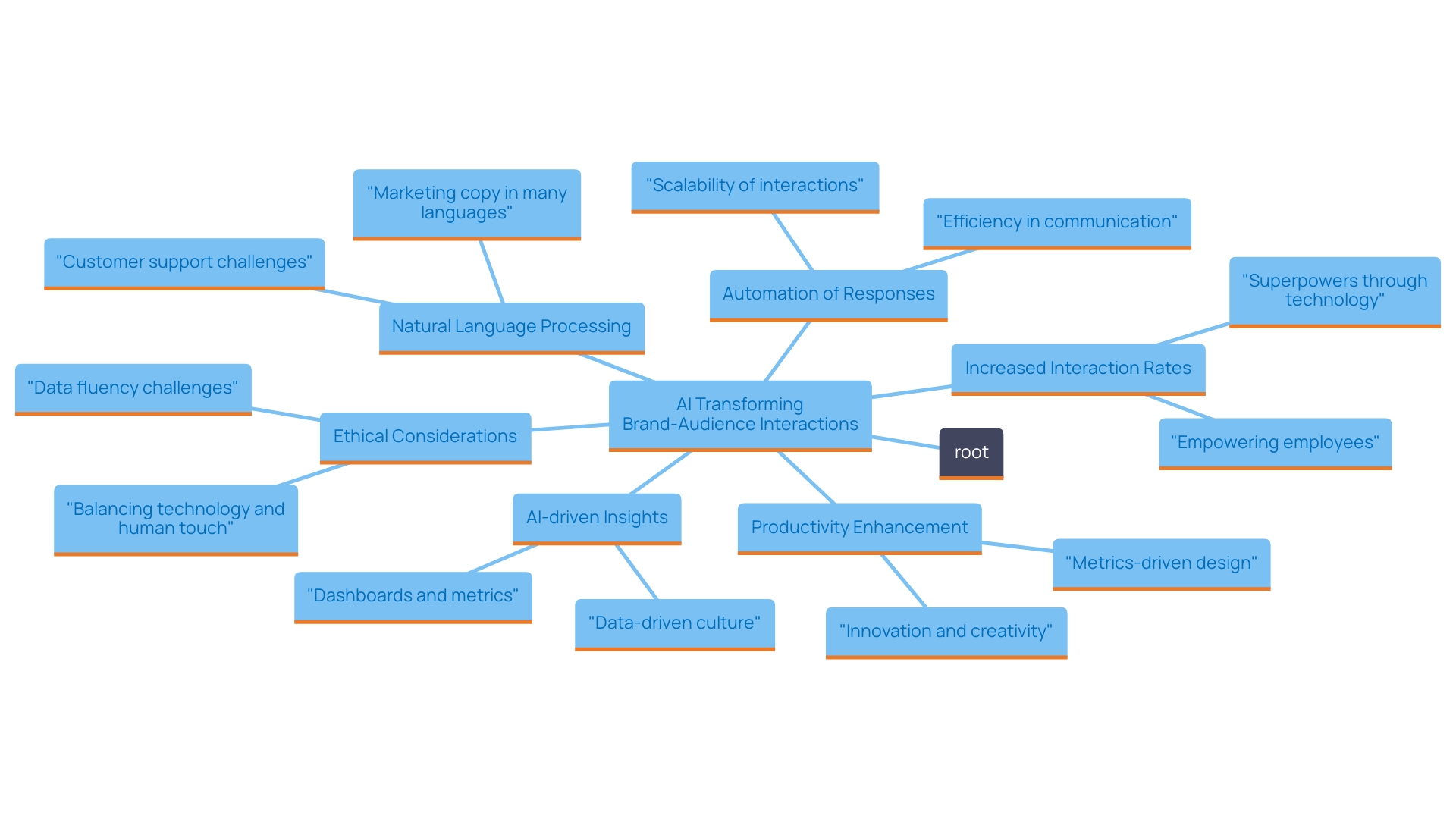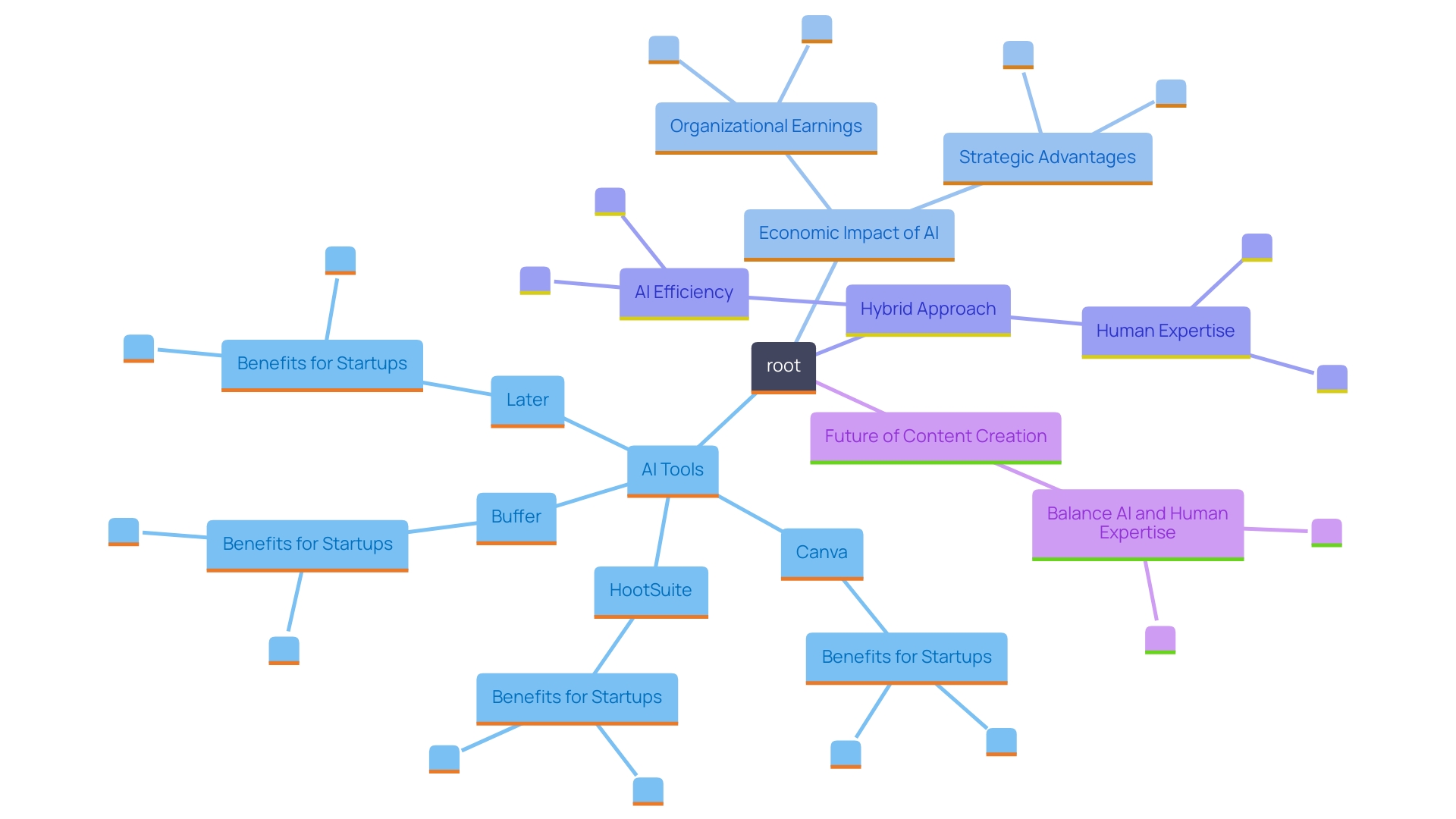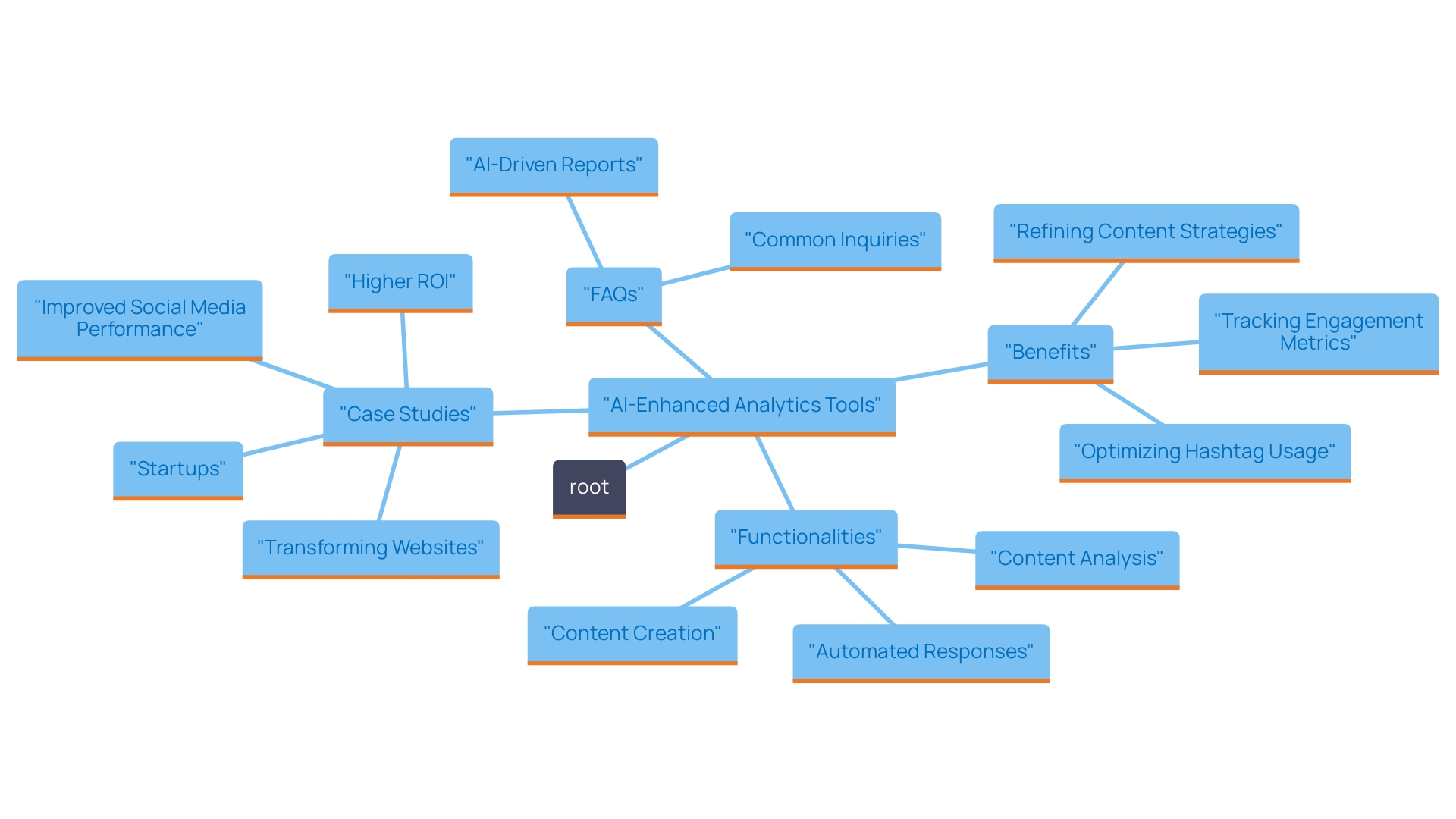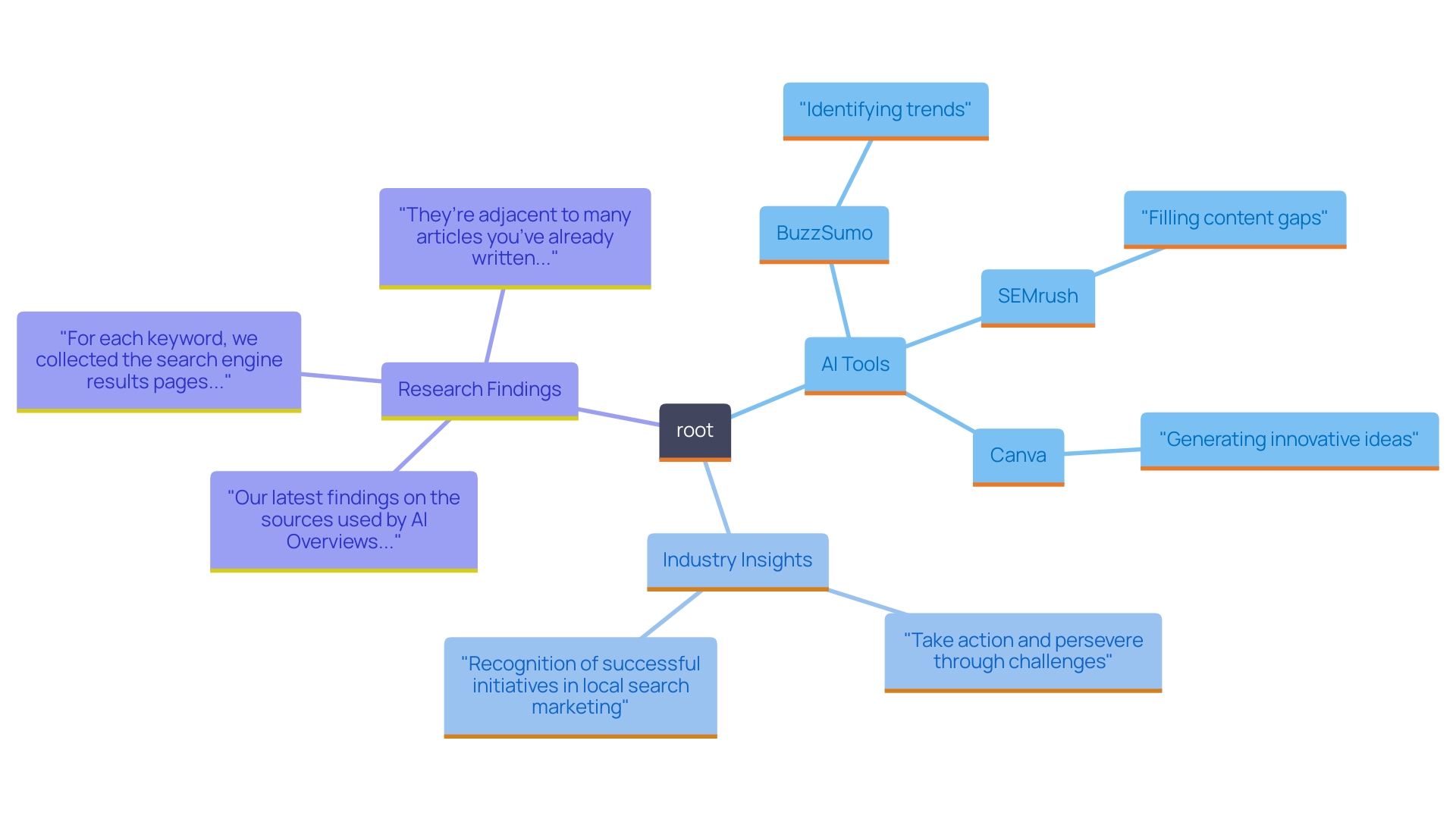
Start
FREE Trial
No credit card required
Login

In the rapidly evolving landscape of social media, the integration of artificial intelligence is transforming how brands engage with their audiences. As companies strive to enhance their online presence and drive measurable results, AI-powered tools are proving indispensable. From automating content creation to optimizing engagement strategies, these innovations not only improve efficiency but also unlock new levels of personalization and responsiveness.
With projections indicating a significant boost in engagement rates, the strategic application of AI in social media is no longer just an option; it’s a necessity for startups aiming to thrive in a competitive market. This article delves into the multifaceted advantages of AI-driven social media strategies, exploring how they can streamline processes, enhance analytics, and foster creativity, ultimately leading to sustainable growth and success.
AI-created online posts are transforming brand-audience interactions by utilizing machine learning to comprehend and anticipate user behavior. For example, Salesforce's Einstein AI platform demonstrates how AI-driven insights can be combined with human intuition to improve sales forecasting, ensuring that media strategies are both data-driven and aligned with client concerns.
By employing advanced Natural Language Processing (NLP) algorithms, businesses can generate content that mimics the tone and language of their most successful posts, resulting in higher interaction rates. Furthermore, AI's ability to automate responses to comments and messages allows brands to maintain a constant online presence, significantly boosting customer interaction and satisfaction.
As we transition into 2024, statistics suggest that AI is anticipated to improve online interaction rates by up to 30%, highlighting its increasing significance. Geraldine Ee raises a pertinent question regarding next-generation AI systems like ChatGPT: 'Will these systems deliver the productivity boost modern economies need – and are we ready for it?' This emphasizes the increasing anticipation for AI to in online marketing.
As firms navigate these advancements, the importance of transparency and ethical data handling becomes paramount to address privacy concerns. The ability of AI to reshape brand-audience interaction is evident in how companies are now able to offer more personalized and timely responses, thus enhancing overall user experience.

AI transforms online platform management by greatly enhancing efficiency. It can produce and schedule posts in a fraction of the time it would take a human team, freeing up resources to focus on strategic initiatives. This results in more timely and pertinent material, which is essential for sustaining an active and engaging online presence. Digital marketing professional Diksha Kalsotra notes, 'AI algorithms can identify and target specific audience segments more effectively, improving ad targeting and conversion rates.' Furthermore, marketing expert John Doe states, 'The ability to analyze vast amounts of data instantaneously allows AI to optimize campaigns in real time, something traditional methods simply can't match.'
One of the primary advantages of AI in social media management is its ability to analyze past post performance. According to a 2024 study by Marketing Insights, AI-driven platforms have increased engagement rates by 30% on average by recommending optimal posting times and types of material. As a result, startups can ensure their material reaches the right audience at the right time, maximizing impact.
Cost-effectiveness is another significant benefit. Automating material creation lowers the labor expenses linked with media management, while simultaneously enhancing output. Research shows that businesses utilizing AI in their social media strategies experienced a 40% . This efficiency allows startups to allocate resources more strategically, driving growth and innovation.
Furthermore, AI facilitates tailored material creation based on user information, resulting in increased interaction as posts connect better with individual preferences. As startups grow, AI can adjust to heightened demands without compromising quality, ensuring that brands preserve their voice and message consistently.
Consistent branding is also facilitated by AI tools, which ensure all outputs adhere to brand guidelines, providing a cohesive look and feel across various platforms. Enhanced engagement metrics further highlight the value of AI, as it predicts trends and user interactions, enabling businesses to create material that not only attracts attention but retains it, leading to improved community engagement.
Furthermore, adherence to data protection regulations like GDPR and CCPA is essential when deploying AI in online campaigns. Ensuring compliance protects user data and builds trust, which is essential for long-term success.
Overall, AI-generated online material offers a strategic edge by improving efficiency, lowering expenses, and boosting engagement—crucial elements for any startup striving for sustainable growth in a competitive market.

Utilizing such as material generation software and automation platforms can transform the online engagement creation process. By integrating AI, startups can swiftly produce a variety of types—from captivating images to engaging captions—precisely tailored to their audience preferences. For instance, in addition to Canva, tools like HootSuite and Buffer also offer AI-driven features that streamline social media management, making it easier to create visually stunning posts and manage content across multiple platforms. Moreover, AI-driven scheduling tools like Later can assess ideal posting times, enhancing visibility and interaction with minimal manual effort.
Generative AI's potential to add $2.6 to $4.4 trillion to the global economy annually underscores its transformative power. A McKinsey survey revealed that 23% of professionals attribute at least 5% of their organizations' earnings before interest and taxes to AI. This impact is further supported by case studies where AI has generated innovative marketing campaign ideas and prioritized high-potential sales leads, enhancing engagement and driving sales. Statista's survey also found that 42% of respondents trust AI for real-time personalization, highlighting its growing acceptance and effectiveness in creation.
Integrating these AI tools not only enhances the speed and quality of creation but also allows startups to concentrate on strategic decision-making, ultimately leading to improved outcomes. By recognizing the economic impact of AI and its practical applications, startup CEOs can harness these advancements to enhance their content strategies and overall business success.

AI-enhanced analytics tools empower startups to gain profound insights into their social media performance. By aggregating engagement data across various channels, these tools provide a unified view of user behavior, enabling businesses to track metrics like engagement rates, reach, and user demographics. This thorough examination aids in recognizing the types of with audiences.
Prominent AI solutions like Sprout Social and Hootsuite offer advanced reporting features that highlight trends and suggest actionable improvements. For instance, consistent tracking of social media metrics can significantly enhance a company's social media presence and provide clear reporting of return on investment (ROI). Startups like XYZ Corp have utilized these tools to enhance their interaction metrics by over 30% within a quarter by tailoring their content strategy based on AI-driven insights. By understanding these metrics, startups can swiftly adjust their strategies to align with audience preferences and market demands.
Katarzyna Dereń, Content Team Leader and Social Listening Expert at Brand24, emphasizes the value of testing actions to develop effective strategies. This method is additionally demonstrated by the case study on hashtag usage, where monitoring branded hashtags offered insights into interaction and reach across platforms. For instance, Company ABC experienced a 50% rise in interaction after refining their hashtag strategy using performance analytics. Analyzing hashtag performance enables businesses to gauge campaign effectiveness and audience interaction.
Recent advancements in AI analytics tools for performance tracking on platforms, such as predictive analytics and real-time engagement monitoring anticipated in 2024, promise even more precise and actionable data. By leveraging these tools, startups can ensure their marketing efforts are not only efficient but also highly effective in engaging their target audience.

AI tools are transforming how startups create new ideas, offering a significant advantage in the competitive social media environment. Platforms such as BuzzSumo, SEMrush, and Canva are especially efficient at examining trending subjects and recommending material based on current interests. Carrie Wilkerson rightly points out that 'The longer you're not taking action the more money you're losing,' emphasizing the need for immediate adoption of these innovative tools to stay competitive.
AI's capability to identify gaps in current material is another powerful feature, enabling startups to fill niches with innovative posts. As Chris Garrett wisely notes, 'When it gets difficult is often right before you succeed.' This emphasizes the significance of , even when challenges arise, as the rewards often follow the struggle.
The recent acknowledgment of Digital Hitmen with the Best Local Search Marketing Initiative Award highlights the increasing significance and effectiveness of AI in idea generation. Furthermore, recent case studies reveal that many high-ranking AI experts are taking proactive measures to prepare for potential AI-related risks, indicating a high level of concern and the necessity of staying ahead in the field. This proactive mindset can also motivate startups to utilize AI for creative brainstorming, ensuring their material remains relevant and engaging.
By utilizing the latest AI tools and staying informed about trending topics, startups can consistently produce high-quality, impactful content that resonates with their audience.

In the ever-evolving world of social media, the integration of artificial intelligence is not just a trend; it’s a pivotal strategy for startups aiming to stand out. By harnessing AI-generated content, brands can craft personalized and engaging interactions that resonate with their audiences. The ability to predict user behavior and automate responses enhances customer satisfaction while freeing up valuable resources for strategic initiatives.
Moreover, AI’s capacity to analyze performance metrics in real time enables startups to optimize their content strategies effectively. As highlighted, companies leveraging AI tools have reported significant increases in engagement rates and reductions in management costs. This data-driven approach ensures that brands can adapt quickly to market demands, ultimately driving growth and fostering creativity in their marketing efforts.
As the landscape continues to shift, startups that embrace AI-driven social media strategies are not only enhancing their operational efficiency but also positioning themselves for long-term success. The call to action is clear: leveraging AI tools is essential for startups to thrive in a competitive environment, ensuring that they can deliver relevant, timely, and impactful content that captivates their audiences. The future of social media engagement is here, and it is powered by AI.
How is AI transforming brand-audience interactions?
AI is transforming brand-audience interactions by using machine learning to understand and predict user behavior, allowing for more personalized and timely responses, which enhances user experience.
What role does Natural Language Processing (NLP) play in content generation?
NLP algorithms enable businesses to generate content that mimics the tone and language of their most successful posts, leading to higher interaction rates.
How does AI improve customer interaction on social media?
AI automates responses to comments and messages, allowing brands to maintain a constant online presence, which significantly boosts customer interaction and satisfaction.
What are the anticipated benefits of AI in online marketing as we move into 2024?
AI is expected to improve online interaction rates by up to 30%, enhancing productivity and efficiency in marketing strategies.
What concerns accompany the use of AI in online marketing?
The importance of transparency and ethical data handling is paramount to address privacy concerns when using AI in online marketing.
How does AI enhance efficiency in social media management?
AI can produce and schedule posts much faster than human teams, allowing businesses to focus on strategic initiatives and ensuring timely and relevant content.
What cost benefits does AI provide in social media management?
Automating content creation reduces labor costs and has been shown to lead to a 40% decrease in overall management costs for businesses using AI.
How does AI ensure consistent branding across platforms?
AI tools help maintain adherence to brand guidelines, ensuring a cohesive look and feel across various platforms.
What is the significance of AI in analyzing social media performance?
AI analytics tools aggregate engagement data, providing insights into user behavior and performance metrics, which helps businesses tailor their content strategies effectively.
How do AI tools assist startups in idea generation?
AI tools like BuzzSumo and SEMrush analyze trending topics and recommend content ideas, helping startups create relevant and engaging material.
What is the economic impact of AI according to recent studies?
Generative AI has the potential to add between $2.6 to $4.4 trillion to the global economy annually, highlighting its transformative power in business operations.